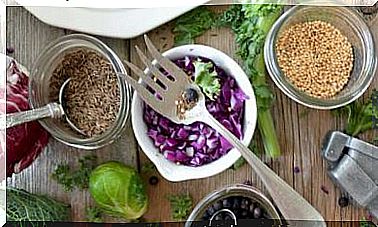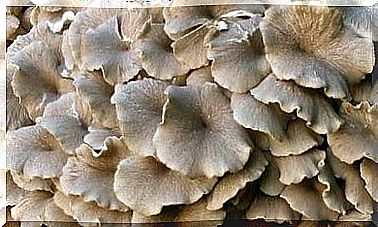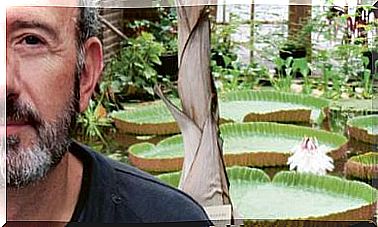Vitamin K2: Unknown But Essential For Your Bones
Recent studies suggest that this unknown vitamin may be key to preventing bone problems, the circulatory system or some types of cancer.

The health of bones, blood vessels and the heart depends on many factors, but there is one key nutrient that has received little attention so far: vitamin K2.
In fact, if they tell you K2 and you think before about the mythical mountain of the same name than about a vitamin.
The main reason for this lack of knowledge is that vitamin K1, the best known form of vitamin K, is transformed into vitamin K2 and K1 deficiency was not a concern, because it is found in abundance in green leafy vegetables.
In addition, vitamin K1 is required in small doses, about 90-120 mcg daily, to allow blood to clot, its main function.
However, we now know that only a small part of vitamin K1 is transformed into K2 and that this is essential for the health of bones, the circulatory or nervous system.
What is vitamin K2 for?
Research from Erasmus University Rotterdam suggests that increasing the dose of K2 could cut the risk of heart attack by half. On the other hand, a study from the University of Athens showed that it produces positive changes in bone density.
And it is that vitamin K2 is essential, among other things, to fix calcium in the bones and not in the arteries. In this way it prevents from osteoporosis and osteoarthritis to arteriosclerosis and heart attacks.
Vitamin K2 teams up with vitamin D, another essential vitamin for bones. Vitamin D ensures that calcium levels in the blood are high.
But vitamin K2 activates osteocalcin, the protein that promotes the accumulation of the mineral in bone. Therefore, both are essential.
Other scientific works relate K2 to dental health, the prevention of some types of cancer – such as prostate cancer – or neurodegenerative diseases.
Among the studies that suggest that vitamin K2 could have a protective effect against cancer, we found one from the Saga Medical School (Japan) that indicates that it reduces the recurrence of liver cancer. Another, from the Cancer Research Center in Heidelberg (Germany), concludes that high doses reduce the risk of prostate cancer by 63%.
Symptoms of a vitamin K deficiency
The vitamin K1 (phylloquinone) is found in plant foods and is essential in the process of blood clotting.
The vitamin K2 (menaquinone) is the result of the transformation of K1 bacteroides and intestinal bifidobacteria and active proteins that regulate the fate of calcium, collaborating in its fixation in bones.
The main symptom of vitamin K1 deficiency is the tendency to suffer from bleeding and bruising, as well as spots of blood under the nails.
The wrinkles early and deep in the face and neck can be a symptom of deficiency K2 and risk of developing osteoporosis, according to a study published in Endocrine Reviews.
The amount that is converted into vitamin K2 depends on individual factors. The deficiency can be discovered by measuring blood levels of osteocalcin.
People who do not consume enough vegetables, those who suffer from alterations in the intestinal microbiota or inflammatory bowel disease are those who have a greater risk of suffering from a vitamin K2 deficiency.
Those who take anticoagulant drugs (warfarin, aspirin …), to lower cholesterol or antibiotics are also at higher risk .
Foods rich in vitamin K2
The minimum daily reference needs for vitamin K1, according to the Spanish Federation of Nutrition, Food and Dietetics Societies, is 90 micrograms for women and 120 micrograms for men.
There is no recommendation for K2, as it is expected to be produced by the intestinal flora.
The best strategy to increase the consumption of vitamin K2 is to eat green vegetables daily and in abundance, because they contain vitamin K1, which digestive bacteria are responsible for transforming into K2.
In addition, we must take care of intestinal health so that the conversion is a success.
The main sources of the precursor vitamin K1 are green leafy vegetables such as kale (882 micrograms in 100 grams), collard greens ( 623 micrograms), and spinach (494 micrograms).
There are some foods that provide vitamin K2 directly. This is found, for example, in whole dairy products and in the fat of grass-fed animals.
But it’s also found in fermented vegetables like soy bean natto, which contains up to 900 micrograms in 100 grams. The sauerkraut brings about 4-5 micrograms.
The vegans tend not to be deficient in vitamin K2, unless they do not take enough green leafy vegetables every day or suffering from a disorder that hinders transformation K2. Some authors suggest that K2 should be obtained from foods of animal origin or fermented, but there is no consensus on this.
How to supplement it
The toxic potential of this vitamin is so low that a maximum dose has not been determined. Multivitamins contain 10 to 25 micrograms. Some doctors recommend 50 to 100 micrograms for people with osteoporosis or osteopenia.
Remember that supplements are not a substitute for a balanced diet.









